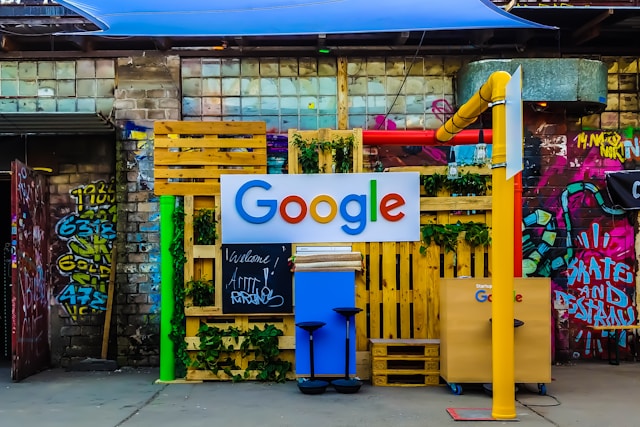If you've ever tried to buy tickets for a popular concert or event only to see them sell out in seconds, you've likely encountered the frustrating world of ticket scalping bots. These automated programs are designed to snatch up tickets faster than any human can, leaving fans to buy them on secondary markets at massively inflated prices. To combat this, the United States introduced the Better Online Ticket Sales (BOTS) Act. But is it working? Recent investigations into industry giant Ticketmaster suggest the battle is far from over.
Understanding the BOTS Act
Enacted in 2016, the Better Online Ticket Sales (BOTS) Act is a U.S. federal law designed to level the playing field for consumers buying tickets online. The law makes it illegal to use software, or "bots," to bypass security measures on ticket-selling websites.
Specifically, the BOTS Act prohibits:
- Circumventing a security measure, access control system, or other technological control used by a ticket issuer to enforce purchasing limits.
- Using a bot to purchase tickets in excess of posted limits.
- Selling tickets that were acquired in violation of these rules, if the seller knew or should have known they were obtained illegally.
The goal was to stop scalpers from using automated tools to buy tickets in bulk, giving real fans a fair chance to purchase tickets at face value.
Australia's Approach
The fight against ticket scalping bots isn't limited to the United States. Other countries have also taken legal action to protect consumers. In Australia, the state of New South Wales (NSW) became the first to outlaw ticket bots in 2017.
The legislation introduced heavy penalties, with fines up to $110,000 for corporations using bots to snap up tickets. The law also went a step further than the US BOTS Act by capping ticket resale prices at no more than 10% above the original price. At the time, a representative from TEG, the owner of Australia's largest ticket seller Ticketek, stated that bots accounted for up to 70% of activity on their website, highlighting the global scale of the issue.
Ticketmaster Under the Microscope
Despite the BOTS Act being in place for years, the problem of ticket scalping persists. This has led U.S. regulators to turn their attention to the platforms themselves. In September 2025, reports emerged that the U.S. Federal Trade Commission (FTC) was investigating whether Ticketmaster, a subsidiary of Live Nation, was doing enough to comply with the BOTS Act.
The probe is reportedly examining whether the ticket-selling giant has a financial incentive to allow resellers to circumvent its own rules. While Ticketmaster denies any wrongdoing and claims to block hundreds of millions of bots daily, the investigation highlights a crucial question: are ticket platforms truly motivated to eliminate a secondary market from which they can also profit?
If the FTC pursues a case and finds Ticketmaster in violation, the penalties could be substantial. The law allows for fines of up to $53,000 per violation, which could translate to billions of dollars in penalties, sending a powerful message to the entire industry.
Renewed Political Pressure
The issue of ticket scalping has drawn attention from the highest levels of government. In March 2025, President Donald Trump signed an executive order aimed at cracking down on ticket scalpers and price-gouging practices. The order specifically calls on the FTC to increase its enforcement of the BOTS Act, a piece of legislation that, despite being law since 2016, has been used to prosecute offenders only once.
The executive order also pushes for greater price transparency throughout the ticket-buying process and calls for investigations into unfair and anti-competitive practices in the secondary market. This move follows similar efforts from the Biden administration, which had focused on eliminating "junk fees" and promoting all-in pricing. The bipartisan political pressure signals a growing consensus that the current state of the ticketing industry is failing consumers.
The order received broad support from across the industry, with Live Nation, StubHub, and the National Independent Venue Association (NIVA) all voicing their approval. The consensus is clear that stronger enforcement of existing laws like the BOTS Act is a critical step in protecting fans from the predatory practices of scalpers.
Fighting on Two Fronts
While regulators are questioning Ticketmaster's efforts, the company has also been on the offensive, using legal channels to fight bot operators. A notable case involved Prestige Entertainment, a ticket broker that Ticketmaster accused of using sophisticated bots to buy large quantities of tickets for resale.
In that lawsuit, Ticketmaster alleged that Prestige used bots and dummy accounts to bypass security measures like CAPTCHAs and purchase limits. The case produced some interesting legal arguments, including a novel copyright claim. Ticketmaster argued that in order to develop the bots, the software creators must have illegally copied code from Ticketmaster's website and app.
The legal battle ultimately ended in a settlement in 2019, with Prestige Entertainment being permanently banned from using bots on Ticketmaster's platforms. This case shows that while Ticketmaster is under scrutiny itself, it has also actively pursued those who exploit its system. It paints a complex picture of a company fighting a war on two fronts: against bot operators and now, against regulators who question if their fight is genuine enough.
An Endless Cat and Mouse Game
The reality of the ticketing industry is a constant technological arms race. As platforms like Ticketmaster develop more sophisticated security measures, bot creators find new ways to circumvent them. They use tools like residential proxies to mimic human users and distribute their attacks across thousands of IP addresses, making them incredibly difficult to detect.
Ticketmaster states it blocks 200 million bots a day, a fivefold increase from 2019. This staggering number illustrates the scale of the problem. The financial incentive for scalpers is enormous, and they are willing to invest heavily in technology to stay ahead.
For consumers, this means the frustration of sold-out events and exorbitant resale prices is likely to continue. While the BOTS Act provides a legal framework to punish offenders, its enforcement and the cooperation of major players like Ticketmaster are key to its success. The current FTC investigation may be a pivotal moment in determining how effectively this law can be wielded to protect fans.







